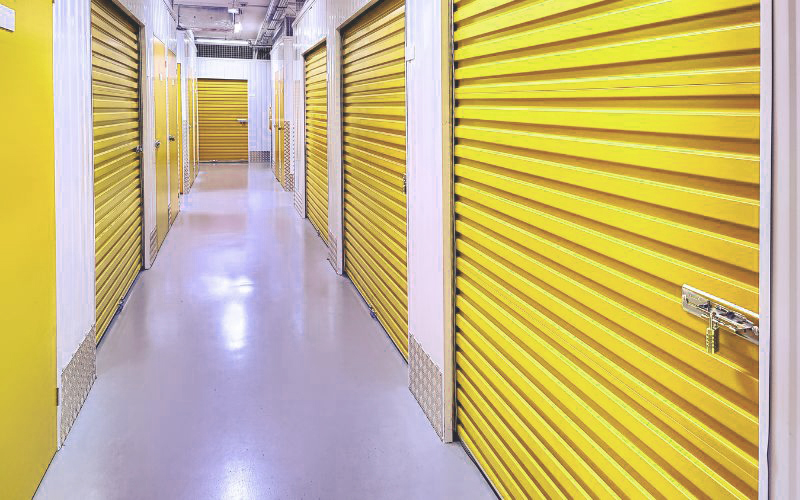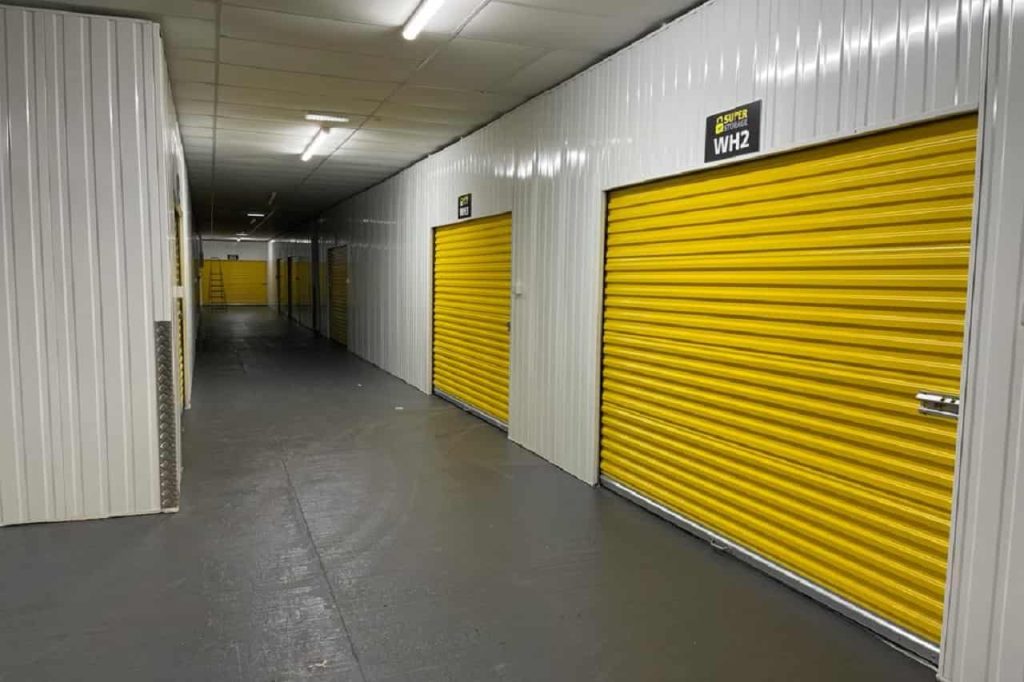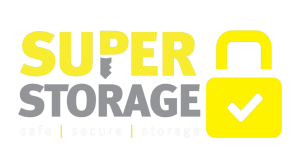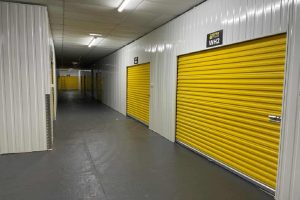In today’s fast-paced world, the demand for storage solutions is growing rapidly, driven by urbanization, downsizing of business, and the rise of e-commerce. In the United Kingdom, the self-storage industry has experienced significant growth, with over 1,900 storage facilities currently in operation. Statistics show that Regular Storage Units are widely used by individuals and families, with 1 in 10 households having used self-storage at some point. Meanwhile, Business Storage Units are becoming increasingly popular among SMEs and entrepreneurs, accounting for 30% of all self-storage customers in the UK.
Whether you’re storing personal belongings or managing business inventory, understanding the differences between Business Storage Units and Regular Storage Units is important. This blog will explore these options in detail, helping you choose the right solution for your needs.
What is Business Storage?
Business storage is a type of storage designed specifically for businesses to keep their items safe and organized. Its purpose is to provide businesses with a secure and convenient place to store their inventory, equipment, documents, and other important items. Key features of business storage include secure facilities with advanced security measures like surveillance cameras and access control systems, climate-controlled units to protect sensitive items, and flexible rental terms to accommodate changing storage needs. Businesses benefit from business storage by freeing up valuable space in their office or workspace, reducing clutter and improving efficiency. Examples of businesses that benefit from business storage include retail stores needing to store excess inventory, contractors storing equipment and tools, and small businesses archiving important documents and records.
Understanding Regular Storage Units
Understanding regular storage units is essential for those seeking storage solutions for personal or non-business-related items. These units are commonly found in facilities and are used for storing a variety of belongings such as household items during a move, seasonal decorations, or personal collections. While regular storage units offer a convenient solution for temporary storage needs. Individuals who typically use Regular Storage Units are homeowners in need of extra space, renters undergoing transitions, or individuals with hobbies requiring storage space for equipment or supplies.
Key Differences Between Business Storage and Regular Storage Units:

1. Size and Space Requirements:
- Business storage units are often larger and can accommodate bulkier items like inventory, equipment, and supplies needed for operations.
- Regular storage units typically come in various Unit sizes but are generally smaller and cater to personal belongings or smaller-scale storage needs like household items or seasonal decorations.
2. Accessibility and Convenience:
- Business storage units may offer extended access hours or even 24/7 accessibility to accommodate business schedules and operations.
- Regular storage units usually have standard access hours, which may be more restrictive compared to business storage, making them less convenient for businesses with non-traditional hours.
3. Security Measures:
- Business storage facilities often prioritise robust security measures such as surveillance cameras, gated access, and onsite staff to ensure the safety of valuable business assets.
- Regular storage units may have security features but often not as comprehensive as those found in business storage facilities, making them potentially less secure for storing valuable or sensitive items.
4. Flexibility of Terms and Contracts:
- Business storage providers may offer more flexibility in terms of lease agreements, allowing businesses to adjust their storage space according to fluctuating inventory or seasonal demands.
- Regular storage units typically have standard lease terms and may lack the flexibility needed for businesses with changing storage needs.
5. Cost and Pricing Structure
- Business Storage is often priced higher due to added features and larger space requirements. May include long-term leasing options.
- Regular Storage is more affordable with flexible rental terms, usually month-to-month.
6. Additional Services and Amenities:
- Business storage facilities may provide additional services tailored to businesses, such as package acceptance, office space rental, or logistical support.
- Regular storage units may offer fewer additional services focusing primarily on basic storage needs without specialized business-oriented amenities.
Understanding these key differences can help businesses and individuals make informed decisions when choosing between business storage and regular storage units based on their specific needs and requirements.
When Should You Choose Business Storage?

(i) Scenarios Where Business Storage Is Ideal:
- Businesses with fluctuating inventory levels benefit from the scalability of business storage, allowing them to adjust storage space as needed without long-term commitments.
- Companies requiring secure storage for sensitive documents, inventory, or expensive equipment can rely on the advanced security measures often provided by business storage facilities.
- Businesses with specialized storage needs, such as climate-controlled environments for perishable goods or sensitive materials, find tailored solutions in business storage facilities.
- Enterprises seeking to streamline operations and declutter workspace can utilize off-site business storage to store surplus inventory, freeing up valuable office or retail space.
(ii) Benefits of Investing in Business Storage Solutions:
- Enhanced security measures ensure the safety of valuable business assets, providing peace of mind to business owners and managers.
- Flexibility in storage space and terms allows businesses to adapt to changing inventory levels and operational requirements without long-term commitments or excessive costs.
- Access to additional services and amenities, such as package acceptance, office space rental, or logistical support, contributes to increased efficiency and productivity for businesses utilizing business storage solutions.
- Cost-effectiveness compared to alternative storage options, such as expanding on-site storage facilities or leasing commercial space solely for storage purposes, makes business storage an attractive investment for businesses of all sizes.
When is Regular Storage Sufficient?
(i) Determining Factors:
- Temporary or short-term storage needs, such as during a move or renovation, where long-term commitments are not required.
- Limited storage space requirements for personal belongings, seasonal items, or hobby-related equipment that do not necessitate specialized storage conditions.
- Budget constraints may make regular storage units a more economical choice compared to Business Storage options, especially for individuals or small-scale storage needs.
(ii) Advantages and Disadvantages of Regular Storage Units:
Advantages:
- Cost-effective solution for temporary or short-term storage needs, offering flexibility without long-term commitments.
- Convenient accessibility for individuals requiring occasional access to stored belongings during standard operating hours.
- Suitable for storing a wide range of personal items, from household furniture to recreational equipment, in various sizes of storage units.
Disadvantages:
- Limited security features compared to business storage facilities, potentially posing a risk to valuable or sensitive items stored in regular storage units.
- Lack of specialized amenities or services tailored to business needs, such as climate control or logistical support, which may be essential for certain businesses.
Regular storage units suffice for individuals or businesses with temporary or minimal storage needs, offering a cost-effective and convenient solution for short-term storage requirements. However, it’s essential to consider the limitations and potential drawbacks of regular storage units compared to business storage options when evaluating storage solutions.
Read More: Common Misconceptions About Self Storage Units
Conclusion:
In conclusion, selecting the right storage solution involves assessing your specific needs, conducting thorough research, and considering long-term goals. We’ve highlighted the importance of understanding key factors such as space requirements, accessibility, security measures, and flexibility of terms. By following these tips, businesses can make informed decisions that optimize efficiency and meet evolving storage needs. Remember, the right storage solution can enhance operations and contribute to overall success. As you start on this decision-making journey, we encourage further exploration and inquiry to find the perfect fit for your business requirements.




